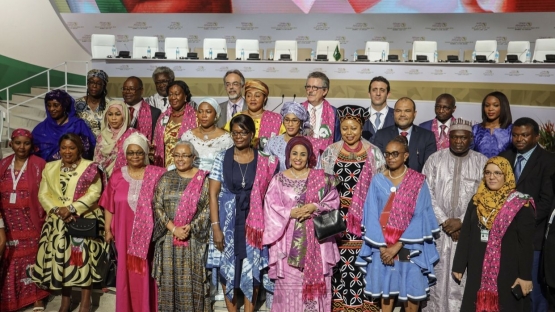In early July, the African Union (AU) held a summit in Niamey, Niger to explore the possibility of a new, continental trade agreement. At the same time, leveraging the opportunity provided by the ongoing event, the First Ladies of the AU’s Member States met to discuss how best to address the growing burden of cancer on the continent. Held on 5 and 6 July, the First Ladies International Symposium on the Burden of Cancer in Africa was organized by the Government of Niger and aimed to generate commitment from all stakeholders to implement concrete measures to address cancer.
Speaking to African First Ladies on the margins of the 12th Extraordinary Session of the Assembly of African Union, Shaukat Abdulrazak, Director of the IAEA Technical Cooperation Division for Africa, explained the role of the IAEA in cancer treatment and encouraged greater cooperation between the Agency, African governments and other international organizations in order to tackle the challenge of cancer. “Improving access to effective cancer services in African countries requires the commitment of the relevant national authorities to develop, secure resources and implement its cancer control strategy,” said Director Abdulrazak.
During the opening ceremony of the conference, President Mahamadou Issoufou of Niger, President Idrissa Deby of Chad and President Roch Marc Christian Kabore of Burkina Faso all expressed their dedication to rallying support, resources and partners in the fight against cancer, which has risen to become a leading cause of death in Africa.
In his statement, Abdulrazak clarified the vital role played by the IAEA in the ongoing efforts to expand access to cancer prevention, diagnosis and treatment options. “Cancer is one of the leading causes of death globally. In 2018, an estimated 9.6 million people died from this disease, 70% of whom lived in low- and middle-income countries, where access to services is limited at best,” he said. “Twenty-three countries in Africa alone have no access to radiotherapy, an essential tool in the treatment of cancer.”







